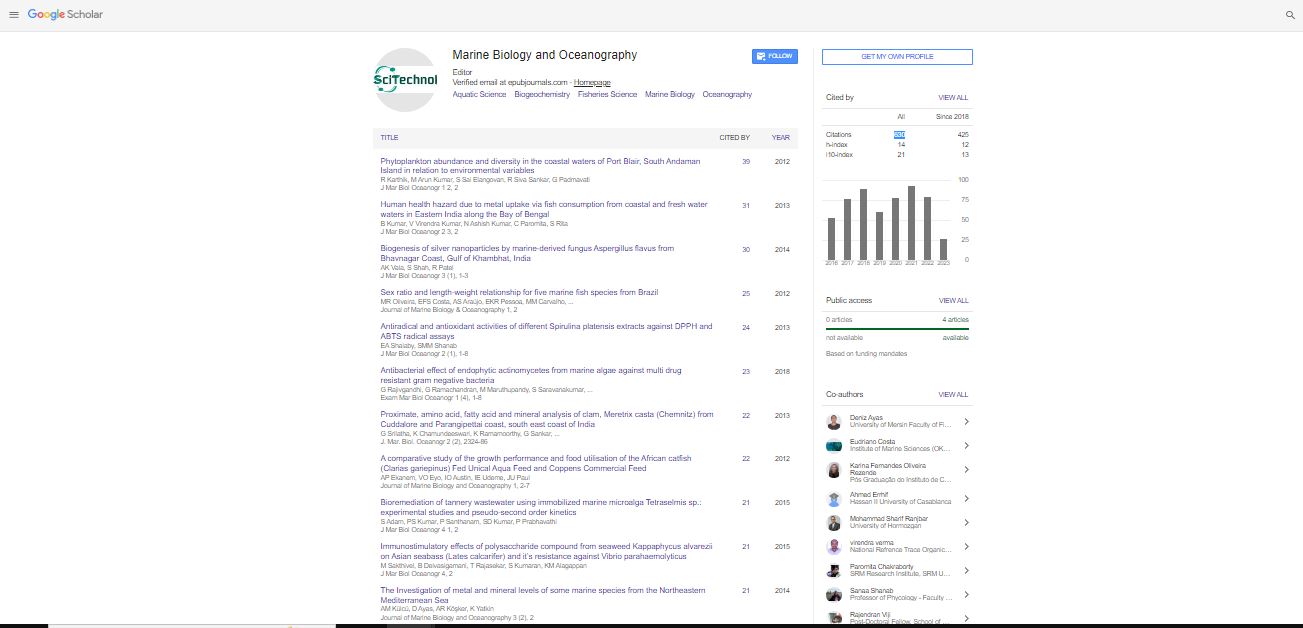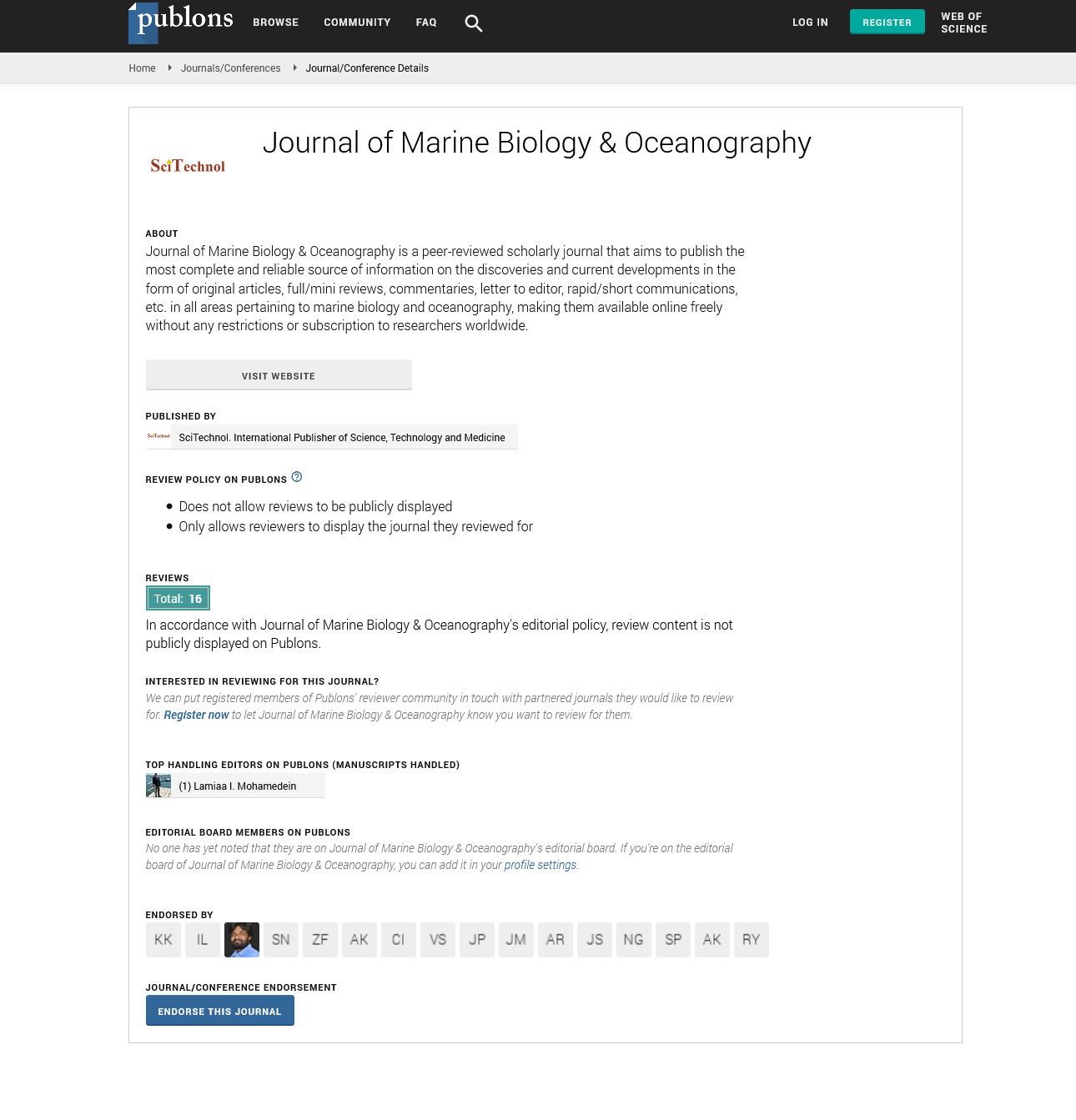Using seaweed on integrate multi-trophic aquaculture system
Alfredo Olivera Galvez
Federal Rural University of Pernambuco, Brazil
: J Mar Biol Oceanogr
Abstract
The integrated multi-trophic system is a low-cost strategy to minimize the waste of compounds nitrogen and phosphorus, reducing the possibility of disease outbreaks, as well as reduced environmental problems. This concept is extremely relevant, because aquaculture production has increased waste discharge and effluent nutrients’ concentration, generating environmental and social challenges. Seaweed as Gracilaria dominguensis can through their natural process assimilate the nitrogenous and phosphate compounds, thus improving the water quality of the integrated multi-trophic aquaculture system (IMTA), which brings advantages to animal growth reared, in addition, producing seaweed biomass. Results of our researches indicated that the use of red seaweed in IMTA systems can enhance the white shrimp Litopenaeus vannamei performance, mainly in their growth showing positive aspects, both economic and environmental, in an IMTA. This is probably related to the fact that the shrimp graze directly on the seaweed and on the biofilm formed on its surface. The use of seaweed in and with shrimp may be a complementary source of food through in natural consumption or grazing of the biofilm that forms on the surface of the seaweed, improving the shrimp zootechnical performance. Additionally, seaweed on IMTA can combine bioremediation capacity with commercial value.
Biography
Alfredo Olivera Galvez is currently working as a professor at the Federal Rural University of Penambuco (UFRPE). He received the doctoral degree on biology of aquatic organisms from the Sao Paulo State University (UNESP) and completed his master’s degree on aquaculture from the Federal University of Santa Catarina (UFSC). Alfredo Olivera Galvez has authored several publications in various journals and books. His publications reflect his research interests in biorremediation, aquaculture, seaweds and microalgae production. He is serving as a member or fellow in National Council for Scientific and Technological Development (CNPq – Brazil). alfredo_oliv@yahoo.com
 Spanish
Spanish  Chinese
Chinese  Russian
Russian  German
German  French
French  Japanese
Japanese  Portuguese
Portuguese  Hindi
Hindi 
